Social Sciences Department Newsletter - 2023

Previous Newsletter-(https://socialsciences.calpoly.edu/newsletter/2020)
 Welcome from the Chair
Welcome from the Chair
Welcome to our 2022-2023 edition of The Globe, the Cal Poly Social Sciences Department annual newsletter. I am Dr. Ryan Alaniz, a Professor of Sociology and Interim Chair. Given our location in San Luis Obispo, I want to acknowledge, respect, and thank yak titʸu titʸu yak tiłhini, the Northern Chumash Tribe of San Luis Obispo County, in whose homelands we are guests.
As students returned to campus this fall, the atmosphere was energetic and alive. Without the stringent Covid restrictions, they are enjoying everything Cal Poly and the SLO community has to offer. Their enthusiasm is a testament to their resilience.
In this edition of The Globe, we will showcase examples of the amazing work being accomplished by our students and faculty. To illustrate, Dr. Rucas describes her work with students on parental lies (yes, all parents and supporters do it!) as an example of our Learn By Doing Award. Next, past graduates of our program discuss their current work and how Cal Poly prepared them for their field. It is incredible to see the depth and breadth of where our alumni go. Social Science faculty have been busy; you can read about their scholarship, student engagement, and awards below as well as learn more about our newest faculty member, Dr. Nikhil Deb. Lastly, we say goodbye to a wonderful colleague and instructor, Dr. Robert Schaeffer.
I want to acknowledge the ongoing work of alumni and their families to support our students through mentoring, social networking, and funding. Cal Poly is just a stepping stone to future success; the connections you provide for employment and the opportunities afforded them by generous donations can give the extra boost they need to achieve their goals. Donations can be directed to our Learn by Doing fund (like study abroad, and conference presentations) or to our general fund (for student research assistants, updating technology, and other needs). In either case, we ask that you consider donating to support these department endeavors. Here is a link for department donations.
We wish you the very best now and in the future.
In community,
Ryan
Meet the New Faculty

Nikhil Deb
Dr. Nikhil Deb joined our department in the fall of September 2022 and is an assistant professor of sociology. Dr. Deb earned his PhD at the University of Tennessee and taught at multiple institutions before we were able to lure him to Cal Poly. His research focuses on political economy of environment and climate justice, social movements, and the global south.
In the last two years, Dr. Deb published multiple peer-viewed papers, book reviews, and public sociology pieces. He is now co-editing a book entitled Social Justice in the Global South (Edward Elgar 2024). This past August he presented at a panel (Panel on New Directions in Environmental Sociology) at American Sociological Association. As part of the BEAcON research projects, he is also excited to mentor students from an underrepresented group. Dr. Deb also received multiple fellowships and grants.
Letters From the Field
Social Sciences Department alumni talk about their post-graduate career
Clarissa Gallo
After graduating from Cal Poly in June 2021, I moved to Washington, DC to pursue higher education at American University. Currently, I am earning M.S. degree in Terrorism and Homeland Security Policy as well as a Graduate Certificate in Cyber Policy and Management. Throughout my time in graduate school, I have had amazing opportunities that have advanced my career skills and strengthened my relationships to those who are in my desired field. I interned at the Office of the Director of National Intelligence (ODNI) for the 2021-2022 academic year and earned a highly selective internship opportunity with the Cybersecurity and Infrastructure Security Agency (CISA) over Summer 2022. These experiences allowed me to gain a deeper understanding of national intelligence and cybersecurity and presented me with chances to develop my policy-writing skills. Academically, I have also been given incredible opportunities to represent American University –– getting selected to attend prestigious conferences on the school's behalf, for instance –– and I have developed invaluable professional relationships with the phenomenal faculty and staff.
Though I am now living across the country, rarely does a day go by in which I do not think about San Luis Obispo. I frequently reminisce on the opportunities that I was given at Cal Poly: taking classes that made me confident in my writing and public speaking abilities; participating in the Honors Program and enrolling in academically rigorous courses; and getting to work with faculty like Dr. Alaniz and Dr. Johnston. Without my education at Cal Poly, I would not be the student nor the person that I am today, and I would not be in the position I am now: currently working in my dream career field and just four months away from graduating with my Master's degree.
Grayson Shor

Grayson Shor
Grayson joined The Climate Pledge, a cross-sector community of companies, organizations, individuals, and partners, working together to reach net-zero carbon emission, in January 2023 as the Senior Lead for Global Partnerships and Communications. Prior to this role, he served as a U.S. diplomat and the Department of State’s lead Climate Security Analyst and primary intelligence briefer to Special Presidential Envoy for Climate John Kerry. Grayson was a member of the environmental experts across the federal government who envisioned, informed, and enacted the nation’s international climate initiatives.
Grayson has received two prestigious merit awards from the Department of State for his leadership in conceptualizing and coordinating innovative new climate change-focused programs with the interagency, for his substantial contributions of the United States’ first-ever National Intelligence Estimate on climate change, and for effectively representing the United States in negotiations at various United Nations conferences. He has also been the lead author of and a major contributor to multiple technical reports about the circular economy, plastic pollution, renewable energy, climate finance, and human rights abuses in critical minerals supply chains for the President of the United States and his Cabinet. While in government, Grayson has also worked on combating a devastating cholera outbreak in Haiti, implementing transparent international economic policy at the OECD, and advancing the use of new satellite technology to help study and reduce ocean plastic pollution.
Grayson is a Mandarin Foreign Language Area Studies fellow, Sigur Center Asian Language grantee, Freeman Foundation grantee, an inaugural George Washington University-U.S. Institute of Peace fellow, and a U.S. Boren Fellow in Taiwan where he served as the American Institute in Taiwan’s first-ever Circular Economy consultant, and was a visiting scholar at the Taiwan Industrial Technology Research Institute. He was also elected to be the Co-Chair of the U.S. Intelligence Community’s largest environmental-focused affinity group.
Grayson has served as an expert source for various international reporting organizations and research institutes. He has been quoted in articles by Reuters, the Huffington Post, the Japan Times, The Taipei Times, the Sigur Center for Asian Studies, and the Wilson Center. He has given lectures at Georgetown University, National Taiwan University, University of Washington, and University of Maryland.
Grayson is an avid outdoorsman, having professionally led nearly 30 backcountry excursions, and enjoys playing blues guitar.
Learn by Doing in Social Sciences
***We would like to give a special shout out of gratitude to the Braun Family whose generous donation will open up new possibilities for dozens of our students.***
Learn by Doing funds were awarded to the Human Evolution and Ecology lab in 2021-2022, spearheaded by Dr. Stacey Rucas and a group of exceptional Anthropology-Geography students. This award financed the group’s Learn by Doing research project which used evolutionary ecological theory to analyze parental deception. While parental lies are common in many forms and societies, from cultural fantasies such as Santa Clause to facetious sayings like “I have eyes in the back of my head,” the lack of research surrounding the phenomena inspired the team to tackle the topic. Results from this study supported the hypothesis that parental deception is often a tool employed by parents to manage the complex set of tasks involved in rearing human offspring, shepherding children towards various ends to better meet particular goals and outcomes. Importantly, falsehoods and intentional omissions documented in our study were leveraged in ways that would increase offspring’s own welfare at ages when their brains are too underdeveloped to be a successful social actor or adequately plan for their own futures. This is a critical contribution to knowledge in the field, since deception is often understood primarily as a Machiavellian tactic by which to increase one’s own fitness at the expense of others, rather than an intentional tool to benefit both children and parents, even when it may come at some degree of cost.
Student researchers conducted virtual semi-structured interviews with over 200 parents documenting instances of parental lying and information withholding. These interviews were transcribed and analyzed to ascertain the nature of lies parents tell their children as a function of child age. Throughout this process, students gained hands-on experience in research design, interview methods, and grant and human subjects approval writing. Following data collection, Dr. Rucas and Co-Lab managers, Sophie Klitgaard and Siena da Costa Pinto led the students in mixed methods data analysis. Students engaged in qualitative coding of the responses according to evolutionary explanations for the behavior, as well as statistical software (SPSS & Excel) analysis, poster design and production, and research presentation. The poster was showcased at the California Workshop on Evolutionary Social Sciences (CWESS 2022), where students were given the opportunity to present their work to experts in the field and other CSU and UC anthropology students. The Learn by Doing grant money went to fund interview transcription software as well as hotel and transportation fees for all lab students to attend the conference in Fullerton, CA.
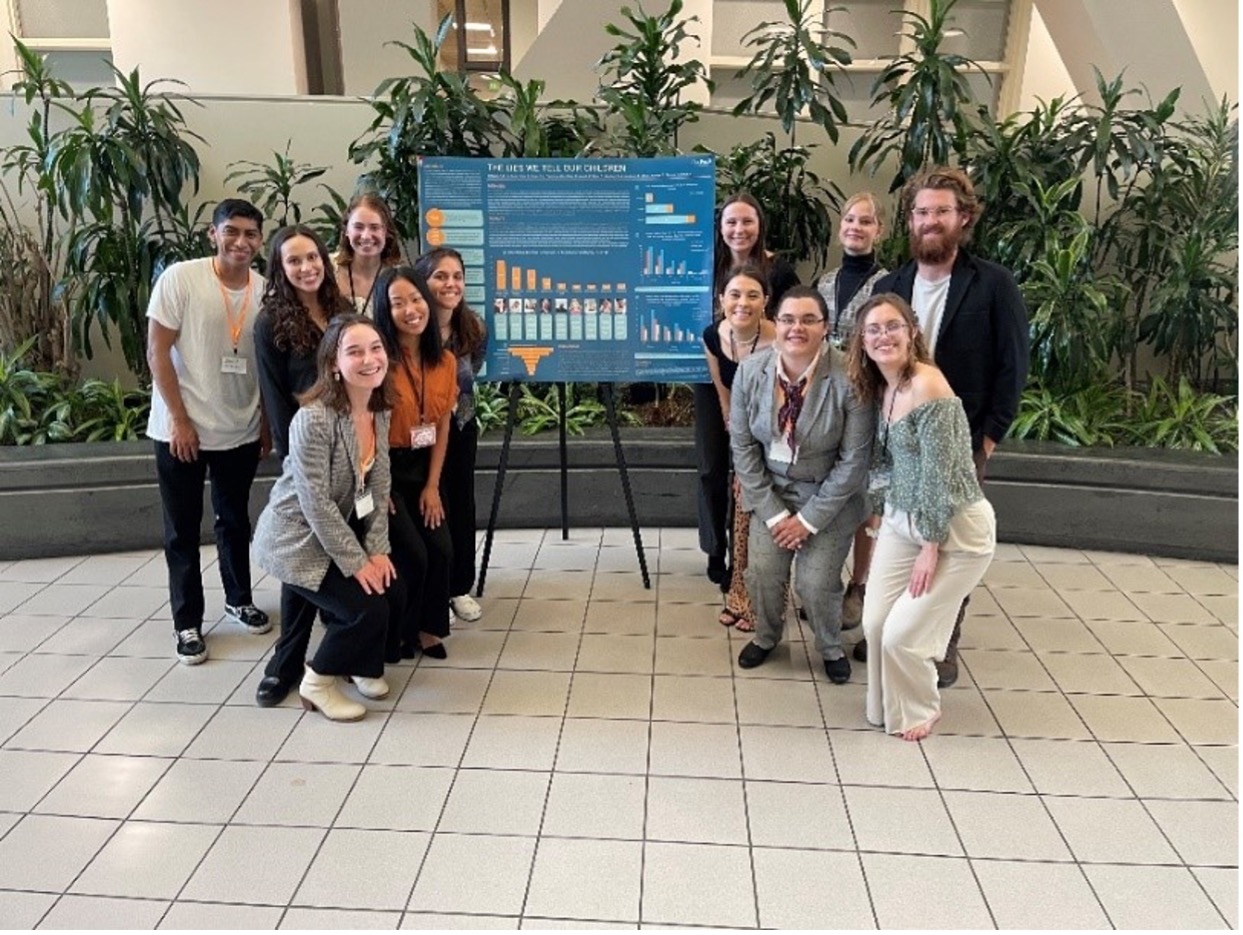
Left: Edson Morales, Elizabeth Zell, Gretchen Richter, Siena da Costa Pinto, Eliza Jacobson, Clara Atwell
Right: Christina Hornbaker, Danielle Ness, Jack Tierney, Sophie Klitgaard, Ashley Pierce, Ginger Vance
Faculty Activities and Awards (in reverse chronological order)

Ben Timms
After a two-year hiatus, Dr. Timms was able to lead the Cal Poly Global Program in Peru for eight weeks with fifteen students who lived with families, took Spanish and General Education courses, went on excursions from the Amazon to Machu Picchu, and did a service-learning project building clean burning stoves in Andean villages. Scholarly, Dr. Timms co-authored a book chapter titled “Physical Geography: The Human-Environment Context in Latin America and the Caribbean” in Placing Latin America: Contemporary Themes in Human Geography. In addition, he presented at the Conference of Latin Americanist Geographers in Antigua, Guatemala titled ""Reforestation and Local Livelihoods in the Southern Peruvian Andes” and presented at the Annual Meeting of the Association of Pacific Coast Geographers titled "The Political Ecology of Forest Transitions in Latin America and the Caribbean.”
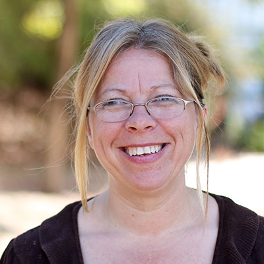
Stacey Rucas
Dr. Stacey Rucas advised a new group of twelve ANG majors working in the Human Evolutionary Ecology lab during the 2021-2022 academic year. The project investigated the reasons for parental deception during childrearing. She advised students on methods development and interviewing using snowball sampling, as well as coding and data analysis. Results from the project were presented by the team at the annual California Workshop on Evolutionary Social Sciences held in-person at Cal State Fullerton in May. She also published an article with the Archives of Sexual Behavior on the topic of marital residence patterns and female-female competition.

Kylie Parrotta
Dr. Parrotta published a book chapter titled, "The Errors are Egregious" Assessing the CSI Effect and Undergraduate Students' Perceptions of Forensic Science through a Pre- and Post-Test Investigation" with Dr. Hans in Mass Mediated Representations of Crime and Criminality and they were invited to present their work at the American Sociological Association's Media Sociology Workshop. She also recently published co-authored pieces in Feminist Pedagogy and The Journal of Criminal Justice Education and received the Early Career Award for Achievement in Teaching for the College of Liberal Arts (2022) and the Carly B. Howery Teaching Enhancement Award from the American Sociological Association (2021) for the co-developed program Striving for Towards Anti-Racist Teaching in the South (STARTS) Inclusivity Institute.

Joan Meyers
Dr. Joan Meyers celebrated the publication of her recent book, Working Democracies: Managing Inequality in Worker Cooperatives (Cornell University Press, 2022) in June. Since then she has written about its workplace lessons for a public sociology blog, Work In Progress; been interviewed about its democratic implications for the Tocqueville 21, a public political science blog under the auspices of the Tocqueville Review; and given a talk on what non-democratic forms of employee ownership can take from worker cooperatives at the Beyster Symposium in La Jolla, CA. Part of that research focused on workplace gender inequality and the possibility of a “participatory bureaucracy” was published in October. During her sabbatical from January – June 2023, she is continuing her ethnographic research into worker ownership and control, this time examining the large and diverse wave of worker cooperatives formed after the Great Recession.
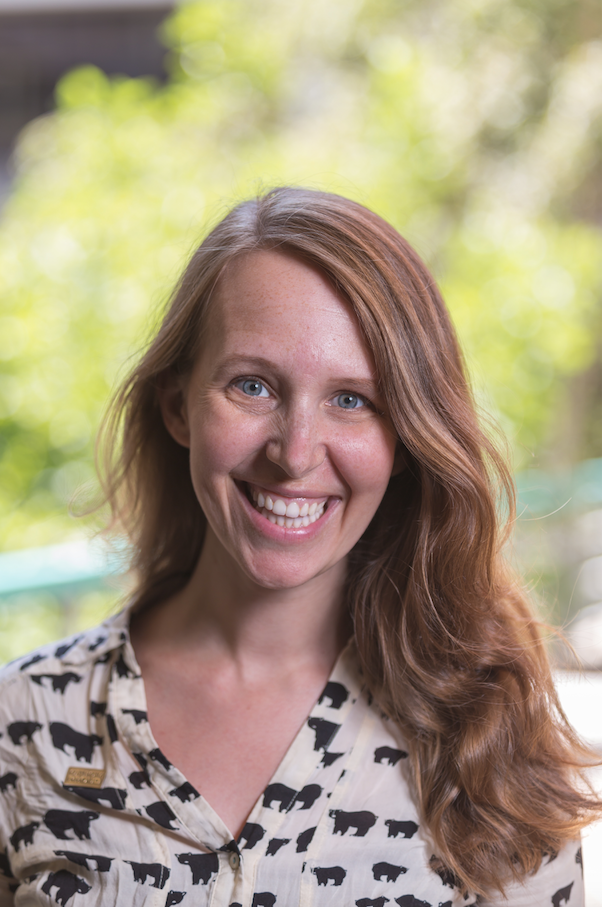
Sara Lopus
Dr. Sara Lopus continues to research the topics of climate and water access in Kenya. When COVID-19 made international fieldwork unfeasible, she and her co-authors shifted to data collection via mobile phone surveys. Recent publications include an article documenting farmers’ perception that climate change undermines weather forecast accuracy (published in the journal “Climatic Change” with University of Arizona’s Dr. Zack Guido and others) and an investigation of water insecurity amid COVID lockdowns in Nairobi’s informal settlements, where residents must wait in public lines to buy water from vendors (published in “Social Science & Medicine” with Kalamazoo College’s Dr. Nupur Joshi and others). For the classroom, Dr. Lopus and Dr. Lappé worked together to create SOC 308 “Sociology of the Environment,” a new addition to the required Sociology curriculum. The course critically explores topics including environmental social movements (from indigenous resistance to resource conservationism to critical environmental justice), precautionary consumption (the attempt to use careful shopping to protect oneself from toxins in the absence of government regulations), and the role of race, class, and gender in shaping our human-environment interactions.
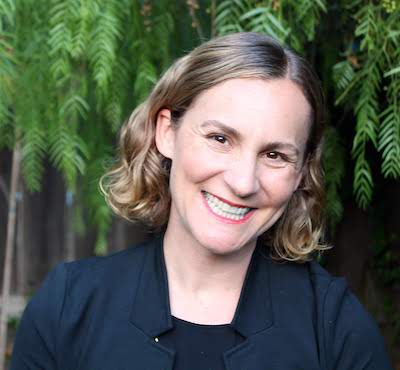
Martine Lappé
Dr. Martine Lappé is a feminist sociologist of health, science, and medicine. Her interdisciplinary research uses qualitative methods to study the intersections of scientific knowledge production, health equity, and lived experiences of pregnancy and parenting in the United States and Canada. This year, Dr. Lappé completed a six-year research project funded by the National Institutes of Health. Her study explored the social and ethical dimensions of epigenetic research related to children’s health. Results from the project appear in several recent publications, including an award-winning article in the journal Medical Anthropology Quarterly titled “You Are What Your Mother Endured: Intergenerational Epigenetics, Early Caregiving, and the Temporal Embedding of Adversity.” This article describes the gender and racial politics of epigenetic research related to intergenerational health and how this area of science is impacting understandings of early-life adversity. Over the past two years, Dr. Lappé has developed two new courses for the Sociology Program, SOC 308: Sociology of the Environment which she co-developed with Dr. Lopus, and SOC 435: Sociology of Health and Illness. She also regularly teaches the capstone course for the Science, Technology and Society Minor Program, ISLA 456: Advanced Project-Based Learning in Science, Technology and Society, and mentors students on her research team. This year, several of her students will be presenting their research at the International Society for Social Studies of Science (4S) conference in Cholula, Mexico. She is currently the Sociology Internship Coordinator and is excited to teach SOC 354: Qualitative Methods this year. Dr. Lappe also received the 2021 Polgar Prize Honorable Mention for Most Outstanding Article in Medical Anthropology Quarterly, Awarded by the Society for Medical Anthropology.
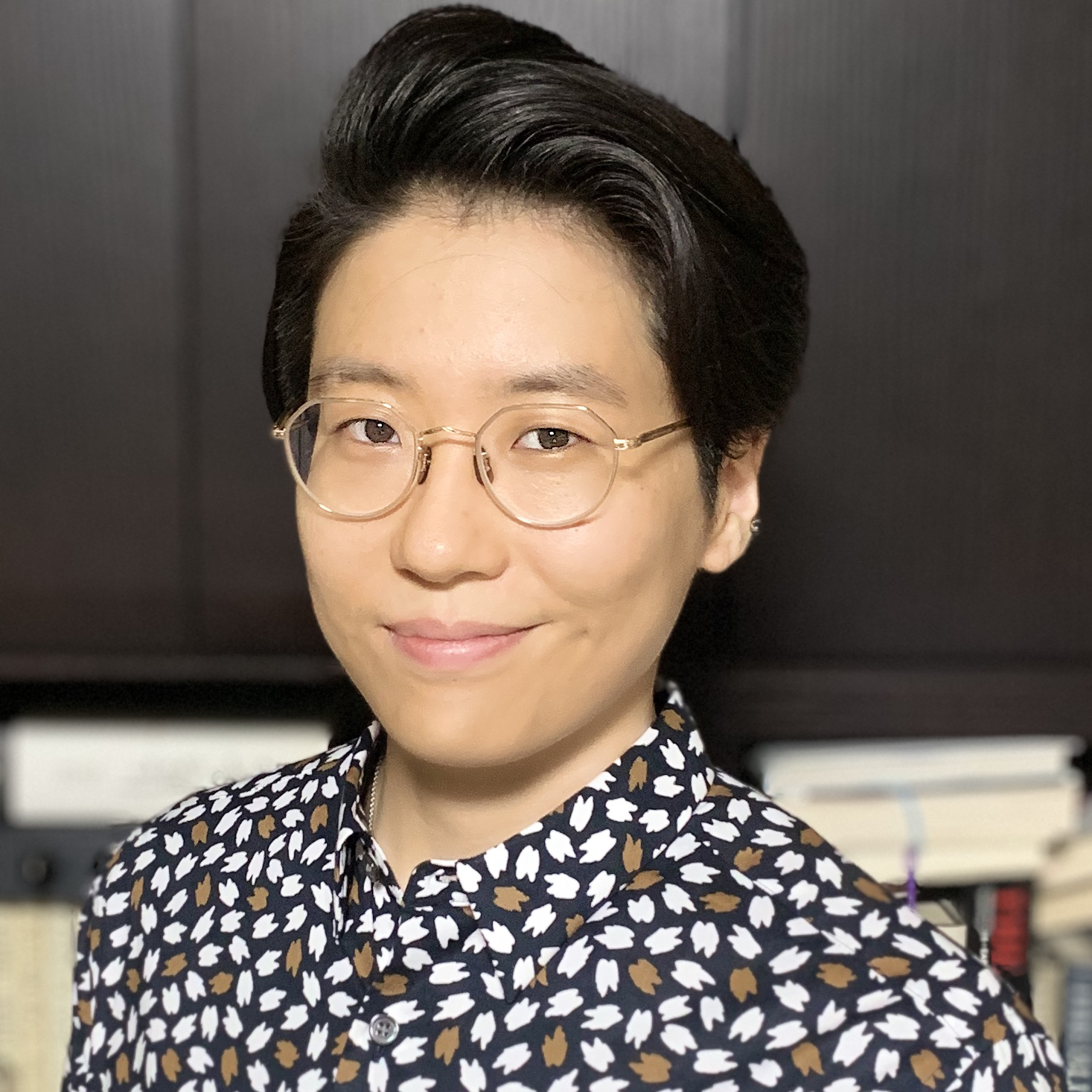
Jess Lee
Dr. Jess Lee joined the department in 2020. She is a quantitative sociologist whose research focuses on how intersectional identities and experiences shape individual social outcomes and worldviews among LGBTQ people of color and Asian Americans. Her most recent publication analyzes group boundary processes captured in Asian American interethnic marriages and its implications for Asian American racial construction and pan-ethnic groupness. She presented this work at the 2022 American Sociological Association meeting. She has been teaching Soc 315: Global Race Relations and Soc 216: US Race and Ethnic Relations and will begin teaching Soc 111: Social Problems in Winter 2023. She also advises the Social Sciences Club and Sociology Minor currently.
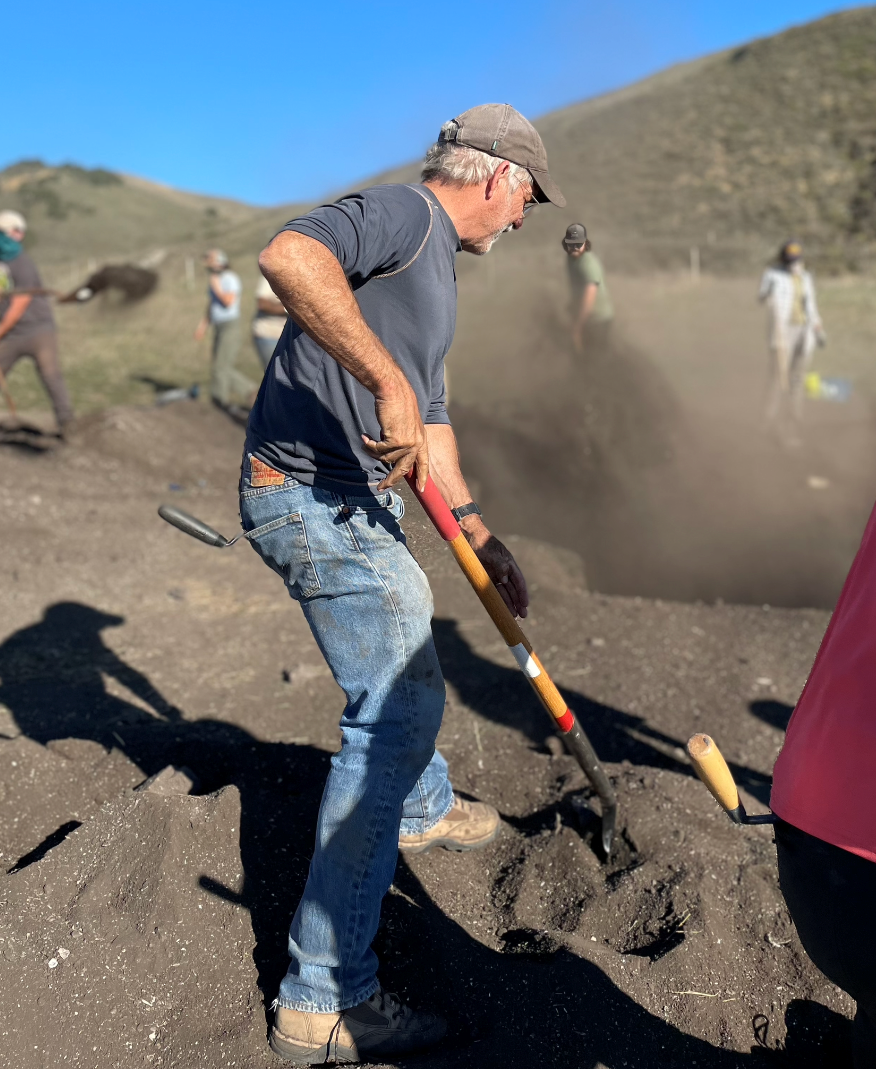
Terry Jones
Terry Jones published five papers in peer-reviewed journals during 2021-2022. Among these were: "Historic and Bioarchaeological Evidence Supports Late Onset of Post Columbian Epidemics in Native California" in Proceedings of the National Academy of Science (2021), "Causes and Consequences of the Late Holocene Extinction of the Marine Flightless Duck (Chendytes lawi) in the Northeastern Pacific" in Quaternary Science Review (2021), and "Post-Contact Cultural Perseverance on the Central California Coast: Sedentism and Maritime Intensification" in American Antiquity. Most recently he co-authored with former senior project students, Claire Tatlow, Emma Cook, Maddie Noet, Jack Webb, and Kate Knox the paper: "Return to the Shellfish Beds: New Insights on Use of California Sea Mussels (Mytilus californianus) and Turban snails (Tegula spp.) based on Harvesting Experiments in California Archaeology. In 2022 he co-chaired the symposium, Papers in Honor of Robert L. Bettinger, at the Society for California Archaeology annual meeting in Visalia. In January 2021 he received a grant of $81,354.00 from P.G. & E. for ongoing archaeological field research on the Diablo Canyon Nuclear Power Plant property. Cal Poly students participated in that field investigation in fall 2021.
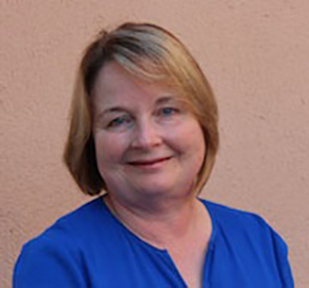
Liz Johnston
Dr. Liz Johnston continued to lead a local support group and work on the national level with the Association for Frontal Temporal Dementia (AFTD). In the spring of 2021, she presented a training seminar about group therapy techniques to 50 support group leaders at the AFTD National Conference. In the fall of 2021, she presented a paper on the puzzle of paranoid behavior at the American Association for Psychoanalysis in Clinical Social Work national conference. She also was recognized for her ten years of service to Cal Poly.
During 2021 - 2022, Dr. Johnston published two papers. The first paper describes the 2017 five-year follow-up of 15 survivors from her 2012 longitudinal study of 32 older adults with critical illness / near death experiences. The second paper presents a new theory about paranoia and delusional disorder using insights and case studies from social media reports. She has submitted a third paper for publication about paranoid behavior, social media and the new phenomenon of gang-stalking. Dr. Johnston continued her longitudinal study during 2022 by conducting ten-year follow-up interviews with 8 surviving participants. In 2022, Dr. Johnston received book contract with the National Association of Social Workers Press. She spent last summer writing this book, a casebook of 100 clinical cases with case analysis, risk factors, diversity factors and DSM 5-TR diagnoses. Dr. Johnston was promoted to Associate Professor and received tenure in September of 2022. She is excited to be serving on four promotion committees and a hiring committee this fall.
Ryan Alaniz
Dr. Alaniz is supporting the collaboration between Cal Poly and Allan Hancock Community College in Santa Maria. Described as a 2+2 program, students will obtain an associate's degree from Hancock and then take Cal Poly courses at the Hancock campus. The goal is to provide access to students who are place bound and who may not have the financial opportunity to attend Cal Poly at the SLO campus. Dr. Alaniz also received Cal Poly Community Service Award for significant contribution by a faculty member.

Retirements
Dr. Robert Schaeffer, Professor Emeritus of Sociology, retired after his multi-decade contribution to San Jose State, Kansas State, and Cal Poly. Originally from Berkeley, California, his research focused on social movements and the World-System. Having published more than a dozen books, his most recent manuscript After Globalization: Crisis and Disintegration was published by Routledge Press in 2021. He was awarded the Richard K. Simon Award for Outstanding Career Achievement in Scholarship. Robert was not only a scholar, but a beloved professor and senior project advisor as well. Students appreciated his wealth of knowledge, wisdom, and the valuable feedback he provided. Dr. Schaeffer and his partner Torry live in San Luis Obispo, California. We wish him well in retirement!